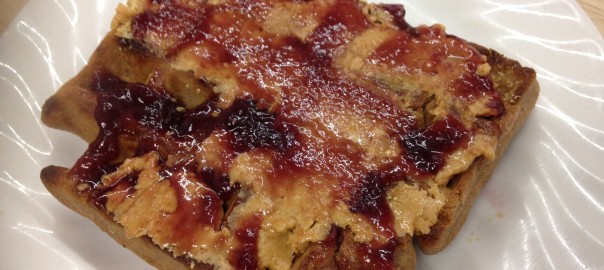Who doesn’t love the cheesy Goldfish Cracker snacks of our youth (and teens and adulthood – )? We had our taste testers give the new baked-in vegetable crackers, made with orange carrot, a test spin to see if they were as delicious and addicting as the original snack cracker.
The New Look
These new crackers look good. Cute shapes of carrots with little faces on them. Charm: ten out of ten! And the color is good, too.

These Were Dairy-Free Goldfish Crackers
That’s right, the new snacks were cheese-less at the time of our taste tests, so they were dairy-free for anyone with a food allergy. The orange color presumably comes from the added vegetable. Now, today (Dec. 2021) they do contain some non-fat milk.
The Nutritionist Recommends More Vegetables!
Nearly everyone needs to eat more vegetables (myself included!). Could this be a sneaky– and yet satisfying– way to get them into our menu? One only hopes –
Taste Tester One Tries Them!
The first taste-tester bears the monicker “Second Pickiest Eater.” The first taste was OK, thought to be kind of bland. The original ones are normally cheesy and salty. These aren’t either.
Taste Tester Two Nibbles Some Carrot Goldfish Crackers
Taste tester two didn’t like the new Carrot Goldfish Crackers, either. She made a comment about dirt –
Taste Tester Three (Me) Tries Them!
Then I tried them– I was excited to be able to eat these crackers, because I can no longer eat cheese and other dairy. I agreed that the first taste was kind of bland – not salty or buttery. But then that aftertaste kicked in – YIKES! Super bad as it dove off the flavor scale. I can’t recommend these, in spite of the vegetables included in the crackers.
Watch Out for Strange Ingredients
I have to comment on the widespread use of canola oil in these crackers, nearly every Lay’s chips products, and many, many health food products. This oil causes diarrhea in myself and some relatives, always (TMI!). Someone at the health food store told me that it is used as a laxative. (I haven’t confirmed this – )
I am sure the creators of these products believe that healthier food is low fat or fat-free. But as a person with digestive issues, I can tell you that eating fat does NOT cause weight gain – ever. Fat is used for our brain, and then outer cell wall of every cell in our body.
What causes weight gain are many factors, including eating grains, beans, sugar, high fructose corn syrup, overconsumption of fruit – these all help people and meat animals gain weight. But there are many other factors, too, that don’t even have to do with food.
This Harvard School of Public Health article by Dr. Crosby says that it is chemically extracted with the chemical hexane. [Oils extracted this way can still contain some chemicals afterwards.] The article says that the leftover hexane is not an issue, but I believe I read in the book Nourishing traditions (by Fallon) that it is still a problem.
It’s also deodorized using heat, which creates trans-fats. Trans-fats are the never-before-seen-in-nature compound, and are found in margarine. I learned in a lecture from Kathy Westover (super knowledgable) that it stops our cells from opening and closing in a normal way. We WANT our cells to open and close the way they are supposed to.
“Another concern is the report that canola oil might contain trans-fats that have been linked with significant health problems. In fact, canola oil does contain very low levels of trans-fat, as do all oils that have been deodorized.”
- “The same transformation [trans-fat creation] occurs during commercial deep-fat frying operations with canola oil. Thus canola oil used to fry French fries for seven hours per day for seven days at 185°C (365°F) resulted in increasing the total trans-fatty acid content of the oil from 2.4% to 3.3% by weight of total fat. [6]
- Of potentially greater concern is the formation of oxidation products of polyunsaturated fatty acids during prolonged commercial deep-fat frying. “
I’ve learned that chemically treating vegetable oils is bad news, as is heating them during cooking. We can see that frying oil at fast food and other restaurants could have these oils heating for 7 hours or longer, all day, as they fry foods. (And this article talked about the same oil being used for a WEEK!) My negative opinion is from reading the first forty pages of Nourishing Traditions – Heating any oil makes it carcinogenic, whether before you cook with it, or after you heat it again. And it is possible that we (the animal in us that judges well) would reject as “bad” anything that smells or tastes bad. So why are we allowing our food makers to mask what we are truly eating through deodorization?
Strangely, the article then goes on to claim that eating canola oil is not as bad as eating other carbohydrates (?? are they comparing it to sugar or white flour here? Say hat?) and other saturated fats.
I have to disagree here. Saturated fats from animals fed grains and beans from feed lots do not have to be deodorized, nor are carcinogenic. They still have fat soluble vitamins. And then saturated fats from grass-fed animals are even better! They are the mother lode of good vitamins and helpful, inflammation-lowering Omega-3 Essential Fatty Acids.
The trans-fat is claimed to be zero because the serving size is too small:
Canola oil, and many other vegetable oils, write on the bottle that they contain no trans-fat, but this may be completely wrong – They can only claim it because the serving size is so small – only one tablespoon. From the article: “The FDA allows any component that is less than 0.5 grams per serving to be listed as zero grams!”
The same article also talks about the risks of mixed refined, deodorized oils – we know that there is widespread food fraud relating to olive oils (read my article about this), and all the other vegetable oils could be the same. Who really knows what food is actually in there.
It’s a Canadian product that went in search of, and found, a market. Dr. Axe writes in this Canola Oil article that this is a largely genetically-modified food, changed by Monsanto around 1995 to reduce “large amounts of erucic acid, which is known to cause health problems” as compared to the wild rapeseed plant seed. In 2005, 87% of the crop was genetically-modified. (This means that the crop may also have been treated with Round Up, or glyphosate, but I have not confirmed this with my research.)
Dr. Axe states that canola oil has “a poor omega-3/6 ratio of 8:1 and loads of trans fats, with only one source showing it was closer to 2:1 (the first number being omega-6s and the second the omega-3s).”
(Most people are healthier with a ratio of 2:1 or 3:1 omega 6 to omega 3. Many of us are eating foods with ranges of 25:1 – really out of balance. And this can worsen inflammation.)
He says there are risks of eating genetically-modified organisms (GMO’s):
- 1) kidney and liver problems in animal studies,
- 2) possible heart disease related to Keshan disease (marked by fibrotic heart lesions) which occur in areas where eurucic acid is higher and selenium is lower;
- 3) a possible increase in risk of hypertension and stroke [in rat animal studies (which don’t translate to humans perfectly) it shortened blood clotting time (did they mean lengthened here?) and increased death rate from hypertension and stroke. The rates were bread to have tendency for hypertension and stroke to use them for medical testing.);
- 4) it may retard growth in infants, because they can’t break it down. it was illegal in the US (by FDA) to use it in baby formula before, but may have made the “good list” somehow now. Dr. Axe is concerned about this.
- 5) increase in trans fats, which raises inflammation and “increase LDL cholesterol and lower HDL cholesterol.” – this is the opposite affect from what you want; “Partially hydrogenated vegetable oils like canola are also known for causing inflammation and calcification of arteries, which are well-established risk factors for coronary heart disease.”
- 6) eating GMO food effects – whoa! – Toxicity, Allergic reactions, Immuno-suppression, Cancer, Loss of nutrition
I’m not sure a snack food is worth all of the above effects, but on top of that, our three taste testers did not like the TASTE of the Carrot Goldfish Crackers. I applaud the effort to bring vegetables into more foods, though – Keep trying!
Would you like to talk with me about your own health journey? I am an herbalist, nutritionist, and health coach. Just contact me at this email (ContactUs@ TransformHealth.biz – remove the space) or via phone: 970.988.5413.
Want to sign up for my newsletter? Includes healthy recipes, nutrition and herbalism tips, and more. It’s free, and once a month.Just click here to sign up in 10 seconds.
Please share this article with your health-minded friends, using the buttons below. Thanks!
Sources:
Dr. Axe: https://draxe.com/nutrition/canola-oil-gm/
Harvard article: https://www.hsph.harvard.edu/nutritionsource/2015/04/13/ask-the-expert-concerns-about-canola-oil/


